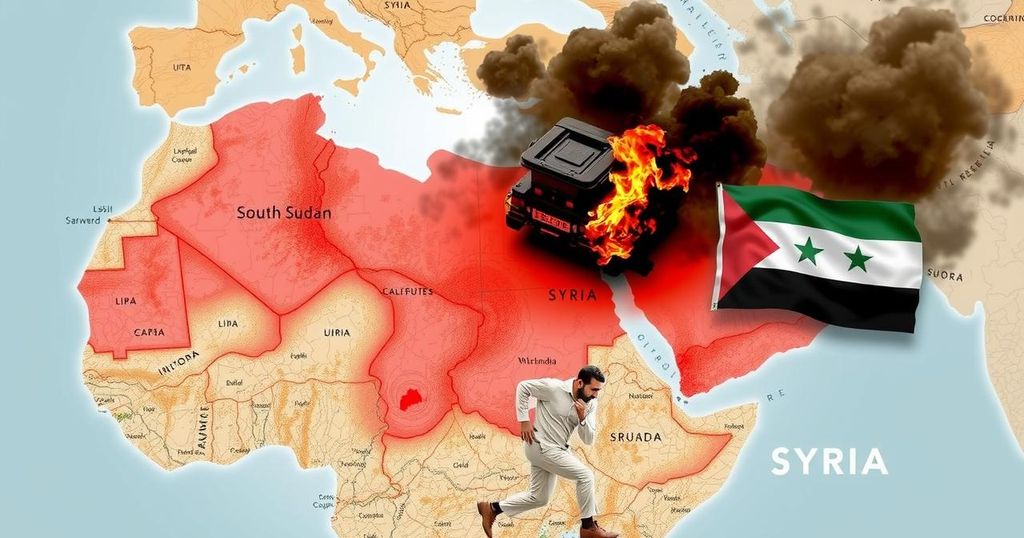Communal violence in South Sudan has increased civilian casualties, with UNMISS reporting 299 deaths and numerous abductions from July to September. In Syria, WHO’s first humanitarian air charter of 2025 has arrived with vital medical supplies. Meanwhile, in Gaza, a one-month-old baby died of hypothermia amid ongoing challenges, highlighting the urgent need for protection and aid for vulnerable populations in these conflict zones.
Communal violence remains a critical issue in South Sudan, with recent reports from the UN Mission in South Sudan (UNMISS) revealing a concerning increase in civilian casualties and abductions. Between July and September of the previous year, non-combatants suffered significantly, with 299 deaths and 310 injuries reported, alongside 151 abductions, primarily concentrated in Warrap and Central Equatoria states. Violence against women and combat-related sexual assaults are also on the rise. UNMISS has urged both government and local leaders to address underlying grievances and ensure accountability for human rights violations, while continuing to pursue peacekeeping efforts.
In Syria, the World Health Organization (WHO) has launched its first humanitarian air charter of the year to support the medical needs of 300,000 individuals amid ongoing conflicts. More than 32 tons of medical supplies have been delivered to Damascus, following previous aid to hospitals in northeastern regions. In addition, the WHO is actively conducting training missions for paramedics and coordinating food distribution to assist families across the country.
Tragically, the humanitarian plight in Gaza has led to the reported death of an infant due to hypothermia, marking the eighth such child fatality in recent weeks. UN agencies emphasize the necessity of protecting civilians and infrastructure amid continued violence, which includes shelling incidents impacting UN-run facilities. Furthermore, critical healthcare facilities remain incapacitated, with urgent calls for the release of detained health professionals and enhanced humanitarian access denied by Israeli authorities.
The UN continues to advocate for the protection of humanitarian workers as well as the equitable distribution of aid, especially in conflict-torn regions, urging all parties to comply with international humanitarian laws.
The conflicts in South Sudan, Syria, and Gaza highlight significant humanitarian crises affecting civilian populations. The UN has consistently monitored and reported on these situations, documenting rising violence, abductions, and humanitarian access challenges. South Sudan has been plagued by communal violence and internal strife for years, leading to dire human rights concerns. In Syria, the protracted war has necessitated ongoing international health responses. Gaza faces a dual crisis of violence and humanitarian needs exacerbated by the seasonal impact on vulnerable populations, especially children. The UN and its agencies are constantly advocating for safety, protection, and adequate living conditions for all affected individuals in these regions.
In conclusion, the reports from South Sudan, Syria, and Gaza underscore the urgent need for international attention and intervention to address the severe humanitarian crises in these regions. The escalating violence and humanitarian violations in South Sudan necessitate accountability and sustainable conflict resolution efforts. In Syria, timely medical assistance remains crucial for millions, while the situation in Gaza calls for immediate protective measures for civilians, especially vulnerable children. Continued advocacy from the international community is essential to ensure adherence to humanitarian laws and the provision of necessary aid.
Original Source: www.globalissues.org






